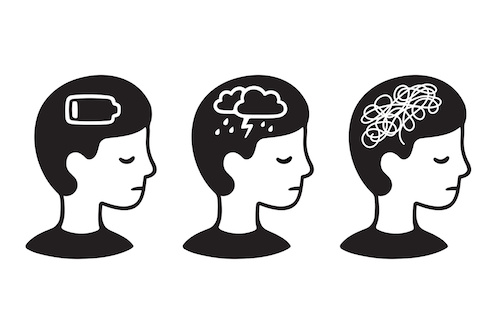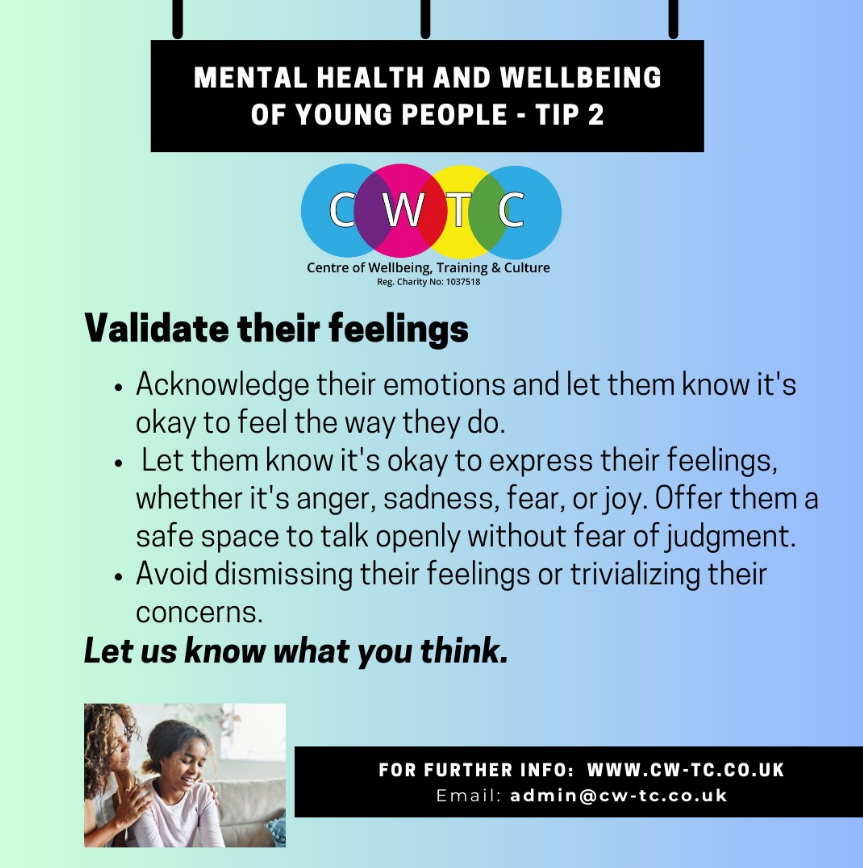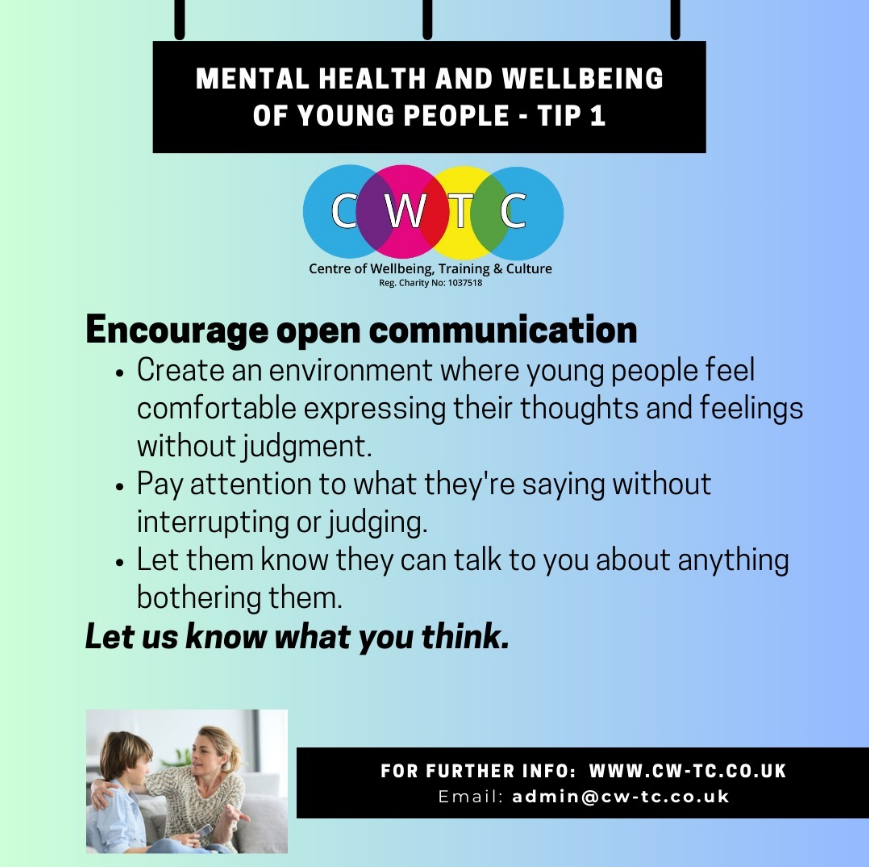Young people Mental Health & Wellbeing

Why?
Understanding the nuances of mental health in children is paramount in ensuring their holistic development. From the early stages of childhood through adolescence, each phase brings unique psychological milestones and potential stressors. In this blog post, we embark on a journey to explore the intricacies of mental health in children, delving into the factors that influence their emotional well-being, identifying warning signs of distress, and equipping ourselves with strategies to nurture their mental health effectively.

Tips to Help
- Prioritize Self-Care: Encourage young people to prioritize self-care activities such as regular exercise, sufficient sleep, balanced nutrition, and relaxation techniques like mindfulness or meditation.
- Stay Connected: Foster supportive relationships with friends, family, and peers. Encourage open communication and let them know it’s okay to seek support when needed.
- Limit Screen Time: Excessive screen time, especially on social media, can contribute to feelings of inadequacy or anxiety. Encourage breaks from screens and limit exposure to negative content.
- Encourage open communication: Create an environment where young people feel comfortable expressing their thoughts and feelings without judgement.
- Practice Gratitude: Encourage the practice of gratitude by keeping a gratitude journal or regularly reflecting on things they are thankful for. This can help shift focus away from negative thoughts.
- Validate their feelings: Acknowledge their or your own emotions and let yourself or someone know its okay to feel the way you or them feel.
- Seek Professional Help When Needed: Normalize seeking help from mental health professionals when struggling with mental health issues. Let them know it’s okay to ask for help and that support is available.
- Engage in Hobbies and Activities: Encourage young people to pursue hobbies and activities they enjoy. Engaging in enjoyable activities can provide a sense of purpose and fulfillment.
- Teach coping skills: Help young people develop healthy coping mechanisms to deal with stress and difficult emotions. Teach them about different techniques such as deep breathing, positive self-talk, journaling, physical activity and more.
- Educate About Mental Health: Provide information and education about mental health to reduce stigma and increase awareness. Let them know that it’s common to struggle with mental health at times and that they are not alone.
- Encourage a Healthy Lifestyle: Emphasize the importance of a healthy lifestyle, including regular physical activity, nutritious eating habits, and avoiding harmful substances like drugs and alcohol.
- Encourage Positive Self-Talk: Teach young people to challenge negative self-talk and replace it with more positive and realistic thoughts. Building self-confidence and self-compassion is crucial for mental well-being.

Remember that supporting young people’s mental health requires patience, understanding, and ongoing encouragement. It’s essential to create a safe and supportive environment where they feel comfortable expressing their feelings and seeking help when needed.
For more information regarding Mental Wellbeing in young people please refer to this short youtube video with various contacts to call if you’re struggling.
-The CWTC Blog Team

Recent Comments